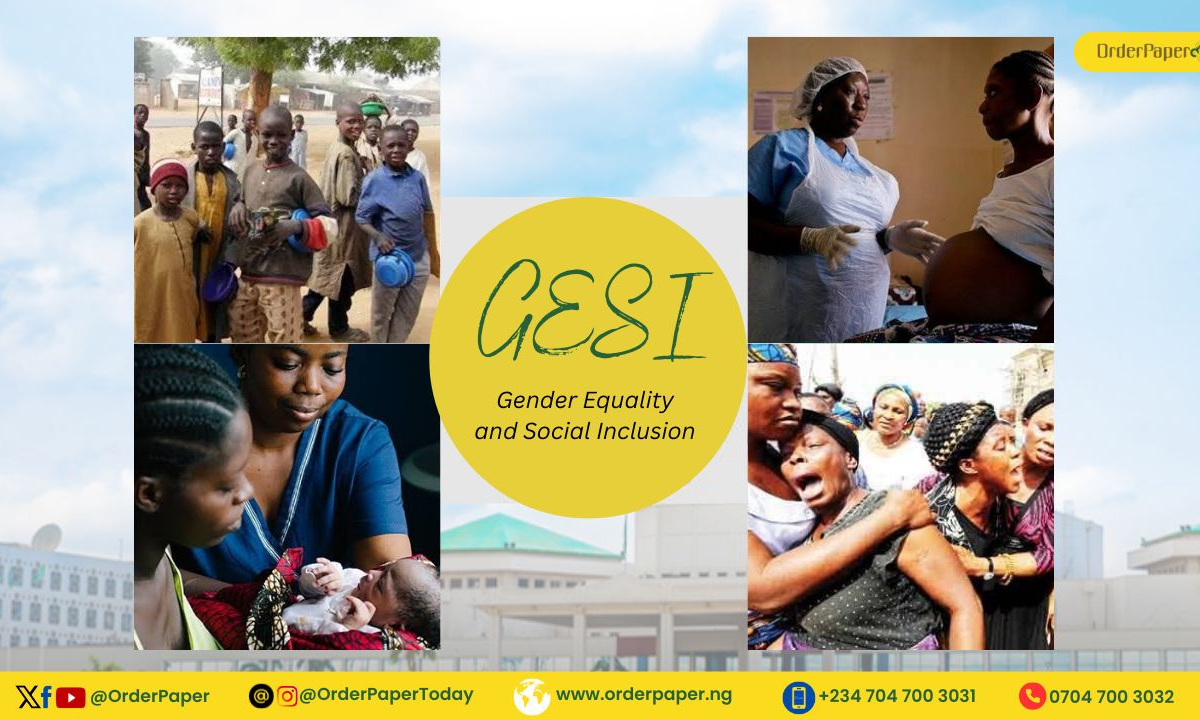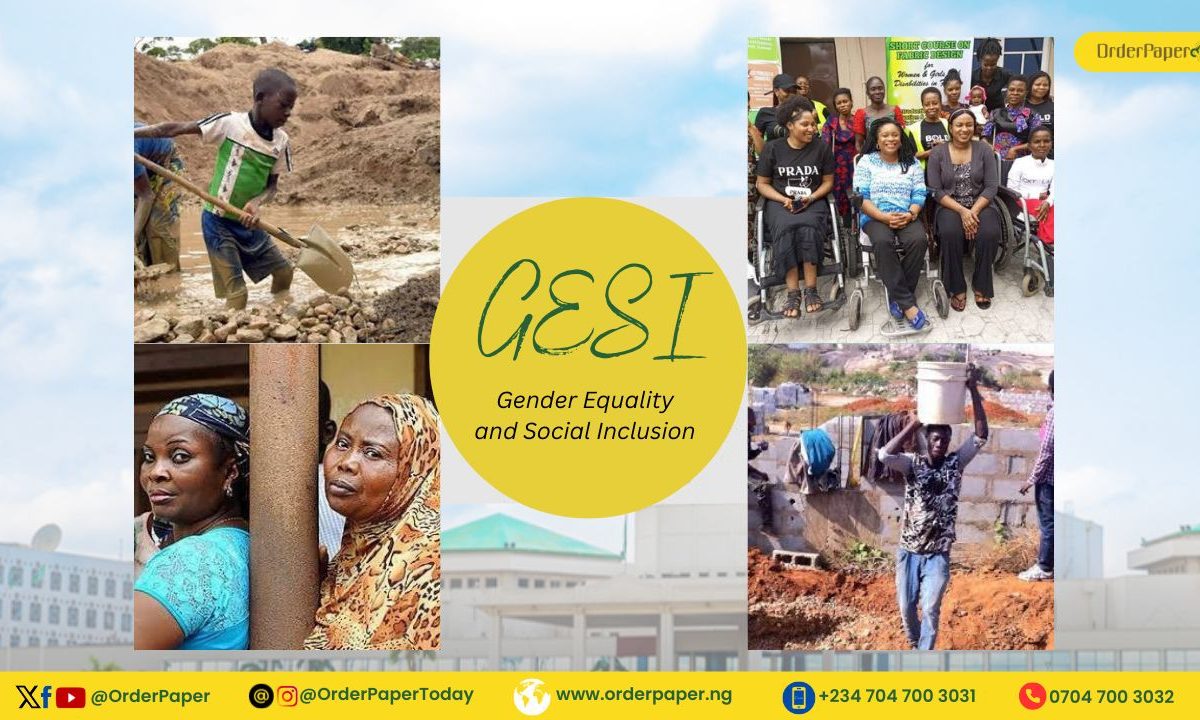Widowed persons are often the forgotten faces of gender inequality, facing discrimination and marginalisation in many societies. For the plenary week of March 11th-15th, 2024, GESI Tracker delves into the widows’ and widowers’ bereavement leave bill and other gender issues.
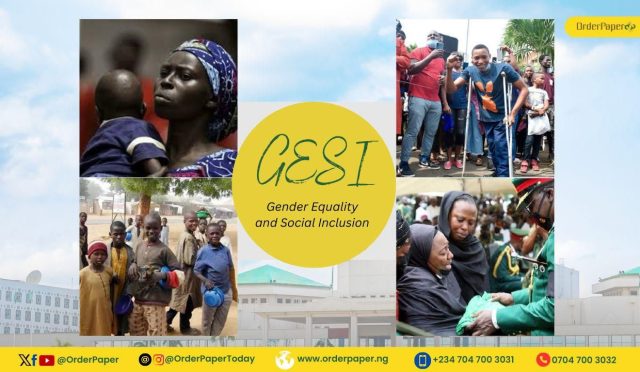
Leave for Widows and Widowers
Widows and widowers in Nigeria often face significant challenges, including social stigmatisation, economic hardship, and lack of access to resources and support. Traditional practices and beliefs sometimes contribute to their marginalisation, leading to issues such as property grabbing, forced eviction, and denial of inheritance rights.
Many of them struggle to provide for themselves and their families, especially if they have limited education or job opportunities and also face difficulties accessing healthcare and other essential services. Implementing Gender Equality and Social Inclusion (GESI) into widows’ and widowers’ leave demonstrates empathy and contributes to a more compassionate and supportive society.
The need for Gender-responsive budget allocation
In Nigeria, achieving gender equality and social inclusion requires a deliberate focus on budget allocation that addresses the specific needs and vulnerabilities of marginalised groups, particularly women and other disadvantaged populations. Despite progress in policy frameworks, disparities persist in access to resources, services, and opportunities, perpetuating inequalities.
A gender-responsive budgeting approach ensures that government expenditures prioritise initiatives that promote gender equality, address social disparities, and empower marginalised communities. By integrating gender and social inclusion considerations into budgetary decisions, Nigeria can advance towards a more equitable and inclusive society where all individuals have equal access to resources and opportunities for meaningful participation and development.
This week, the GESI Tracker focuses on analysing the allocation of the statutory budget across different sectors, particularly noting the relatively modest allocation to GESI-related sectors compared to others and the GESI-related bill that passed the National Assembly during the week under review.
The Senate approved a budget of N1.28 trillion for the Federal Capital Territory (FCT) for the 2024 fiscal year. This budget includes N140 billion for personnel costs, N373 billion for overhead costs, and N768 billion for capital projects. After deliberations, the Senate committee recommended increasing the budget from the initial proposal of N1.15 trillion. The Deputy Senate President commended the budget, highlighting its role in transforming the FCT into a world-class city.
GESI FOCUS OF THE WEEK:
Plenary week March 91th to 21st, 2024
Bills
Widowhood Leave Bill, 2023 HB. 401- Rep. Musa Abdullahi (APC, Bida, Gbako, Katcha Federal Constituency, Niger state).
This Widowhood Leave Bill, 2023, seeks a six-month leave period to enable widows and widowers to grieve, seek counselling, and adjust. It supports emotional healing, family care responsibilities, and fulfilling religious and cultural obligations. The bill aims to address challenges faced by widows and widowers and promote resilience during the challenging period of widowhood. The bill has passed for a second reading.
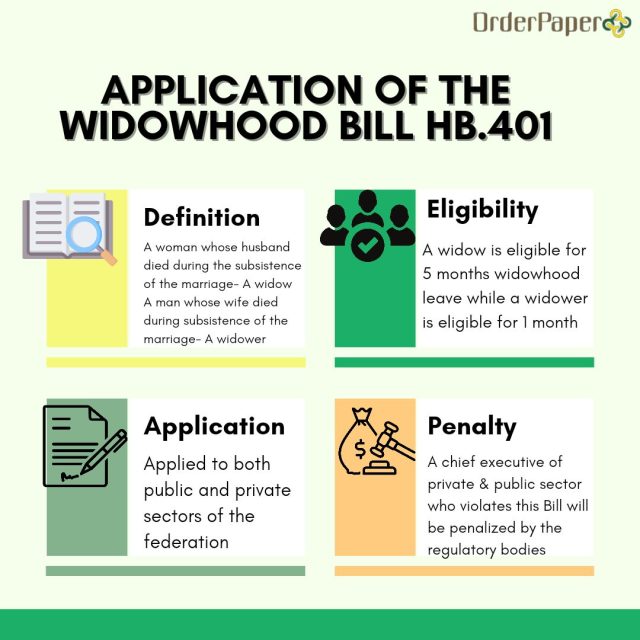
2024 Federal Capital Territory (FCT), Appropriations Bill 2024 (SB 397) – Executive Bill presented by Sen. Opeyemi Bamidele (APC, Ekiti Central)
During Tuesday’s plenary, the Senate passed a budget of N1.28 trillion for the Federal Capital Territory (FCT) in 2024. The budget includes allocations for various sectors, such as transportation, education, health, agriculture, rural development, and social development. Key allocations include N69 billion for transportation, with funds designated for the Abuja Light Rail Project and bus terminal construction. The education sector received N80.3 billion, with a portion allocated to the Universal Basic Education Board (UBEB). The health sector’s budget proposal is N45.7 billion, with funds allocated for the Drug Revolving Fund.
Additionally, N7.9 billion is earmarked for agricultural and rural development. At the same time, N5 billion is allocated for social development, focusing on gender, youth, and children’s development, supporting vulnerable groups, and preserving Nigeria’s cultural heritage. A comparison of these allocations clearly highlights an unbalanced distribution of resources, with the gender and social components taking the most hit.
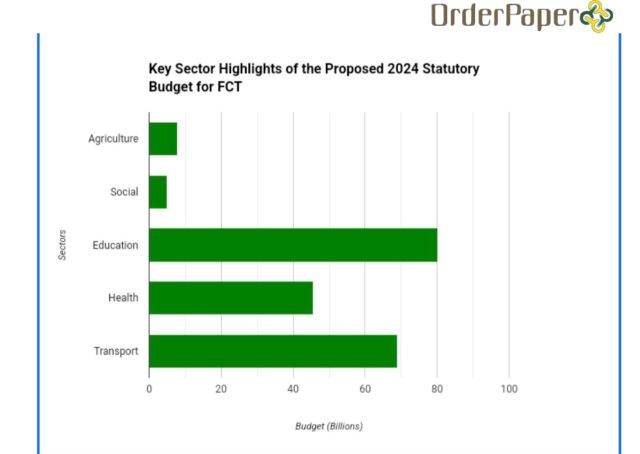
Gender and Equitable Opportunities Bill, 2024 SB. 401 – Sen. Adebule Idiat Oluranti (Lagos West Senatorial District)
While the bill, which was slated for first reading on Wednesday, 20th March, was not taken, the bill seeks to reduce gender-based violations and legally equip women to challenge the inequalities besetting them, which has further been exacerbated by the rising wave of Sexual and Gender-Based Violence (SGBV) in various towns and communities in the country and other related matters.
Written by Esther Adedoyin.

